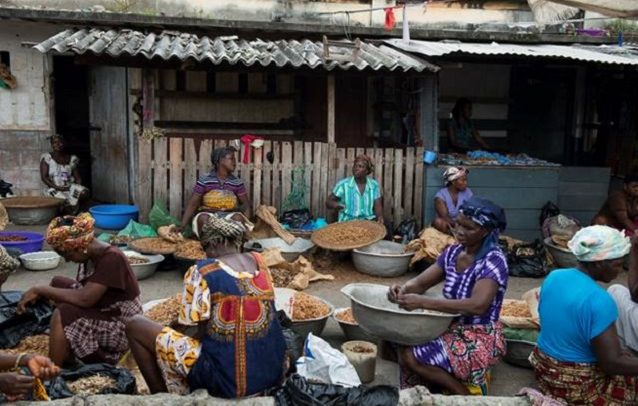
The share of the people living in extreme poverty around the globe has declined but is falling a slower pace as the challenges in Sub-Saharan Africa become more acute, the World Bank said Wednesday.
The slowing decline and uneven success rate raises concerns as more of the world's poor become concentrated in a region beset by conflict and the effects of climate change, the bank said in its annual report.
The global development lender said the percentage of people living in extreme poverty fell to a new low of 10 percent in 2015 -- the latest year for which data is available -- down from 11 percent in 2013, reflecting steady but slowing progress globally.
The number of people living on less than $1.90 a day, the threshold for extreme poverty, fell during this period by 68 million to 736 million, the data show.
"Over the last 25 years, more than a billion people have lifted themselves out of extreme poverty and the global poverty rate is now lower than it has ever been in recorded history. This is one of the greatest human achievements of our time," World Bank Group President Jim Yong Kim said.
But the report shows the rate of decline is slowing, especially in the least developed countries.
So "if we are going to end poverty by 2030, we need much more investment, particularly in building human capital, to help promote the inclusive growth it will take to reach the remaining poor," Kim said. "For their sake, we cannot fail."
As more countries lift people out of poverty, a higher share of the world's poor will be concentrated in Sub-Saharan Africa, a region that already has high poverty rates of 41 percent, and slow progress, said Carolina Sanchez-Paramo of the World Bank's Poverty & Equity Global Practice.
This fight "will be won and lost" in Sub-Saharan Africa, she told reporters.
There are many conflict countries in the region but they also are more susceptible to the impact of changing climate, she said.
The anti-poverty efforts also have suffered from a combination of lower economic growth rates and growth that is "more concentrated in capital intensive" industries that do not generate as much employment.
That makes the growth less inclusive in some African countries so "it pays off less in terms of poverty reduction," she said.
About half of the world's countries now have poverty rates below three percent, but the report said the world was not on track to achieve that target globally by 2030.
Read Full Story




















Facebook
Twitter
Pinterest
Instagram
Google+
YouTube
LinkedIn
RSS